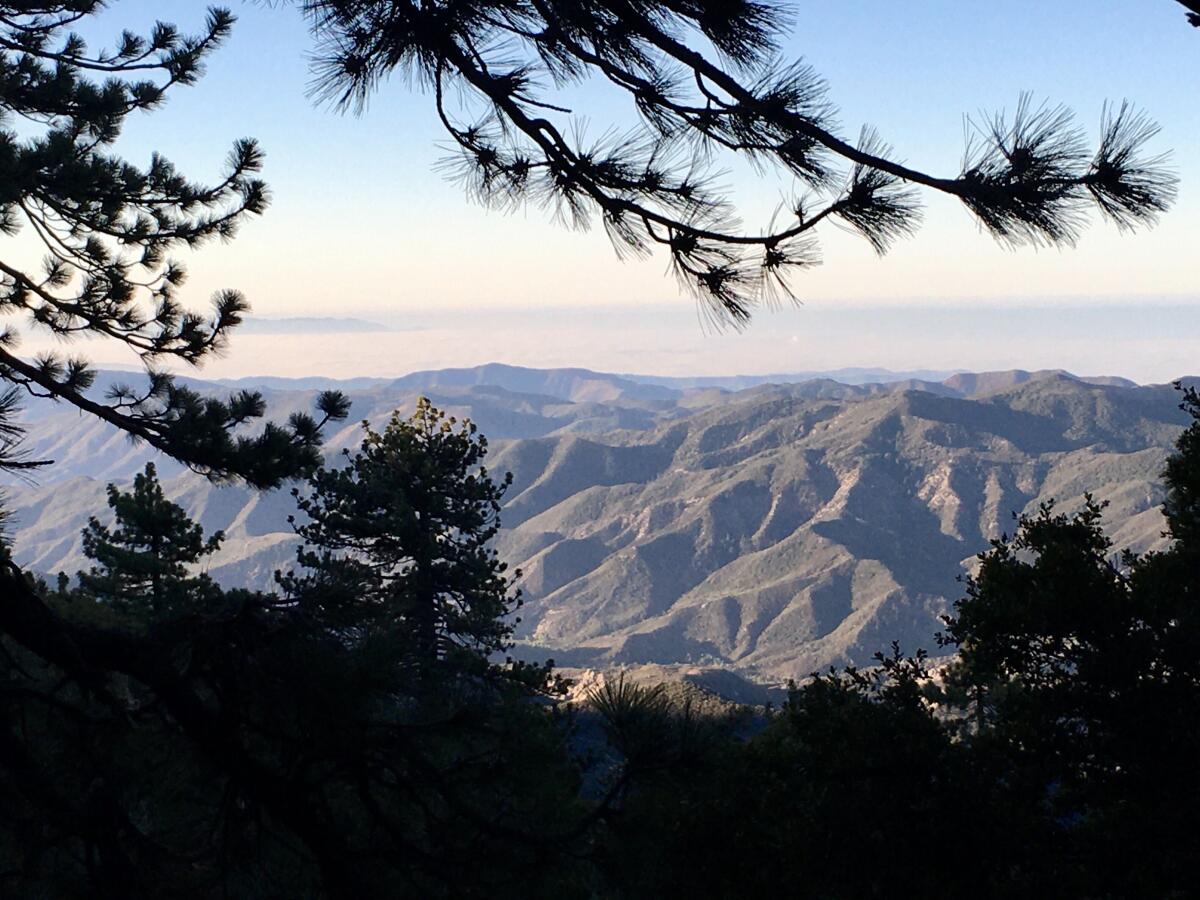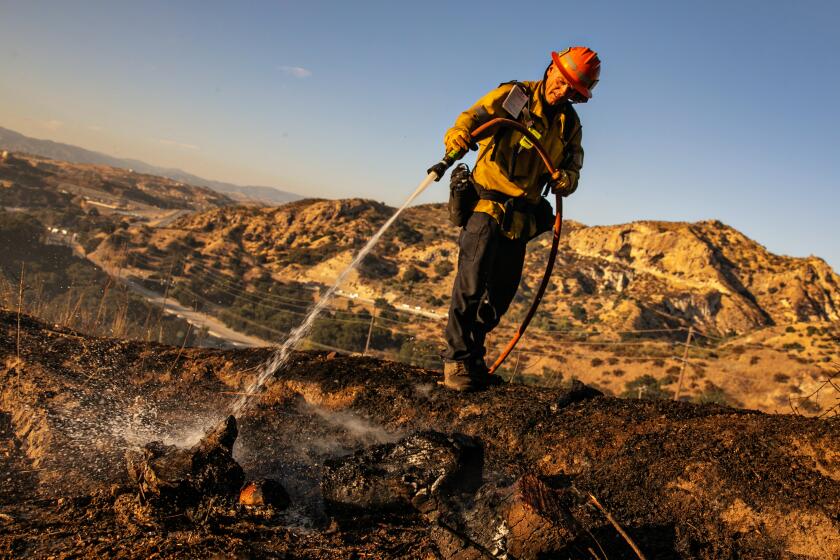Forest thinning on Pine Mountain can move forward after Patagonia, Ventura County lawsuit dismissed

- Share via
An effort to stop the U.S. Forest Service from taking chain saws to a section of Los Padres National Forest that is home to old-growth pines and a multitude of native plants and wildlife has hit a dead end.
A lawsuit filed last year by the county of Ventura, the city of Ojai, the Patagonia clothing company and other environmental groups aimed at blocking the Forest Service plan to thin the trees on Pine Mountain was dismissed last week by a federal judge.
The lawsuit hoped to halt the Reyes Peak Forest Health and Fuels Reduction Project, which affects more than 750 acres of forestland north of Ojai.
“We had hoped the court would rule in favor of the planet, biodiversity and the community,” Hans Cole, head of environmental activism at Patagonia, said in a news release. “We’re disappointed, but the work to protect Pine Mountain will continue.”
The plaintiffs alleged that the plan was without merit and improperly approved to meet logging quotas instituted by then-President Trump.
The project also garnered sharp criticism when it was proposed in 2020. The Forest Service received more than 12,000 comments from the public opposing the project — more than any other project in the history of the Los Padres National Forest, the plaintiffs said in a news release.
The Agua fire, near the edge of the Angeles National Forest, swelled from 4 acres to 100 acres in less than two hours, L.A. County firefighters said.
A federal judge on July 19 dismissed the suit with prejudice, preventing Patagonia, Ventura County, the Center for Biological Diversity, the Earth Island Institute and other parties to the lawsuit from refiling.
They have 60 days from Monday to file an appeal.
“The court deferred to the Forest Service’s arguments and we respectfully disagree with that,” said Maggie Hall, an attorney with the Environmental Defense Center who was working on the lawsuit.
“This logging project would permanently harm this incredible ecological resource,” Hall said. “It’s also a popular recreation area, and it’s on ancestral lands of the Chumash people.”
“We believe this ruling is incorrect and are working with our legal team to determine next steps,” Jeff Kuyper, executive director of Los Padres ForestWatch, said in a news release. “We will explore all of our options for protecting Pine Mountain from a misguided and potentially damaging project.”
In a statement, the Forest Service said the project would “protect an area that is at risk due to overstocking and the devastating impacts of disease and insect infestation.”
“We are in a wildfire crisis and must take immediate action to protect our forests in Southern California,” Los Padres Forest Supervisor Chris Stubbs said in the statement.
The Forest Service said it would “work with states, counties, Tribes and other partners to address wildfire risks to critical infrastructure, protect communities, and make forests more resilient.”
Humans exploit nearly 15,000 other vertebrate species, and 13% of them are either vulnerable, endangered or critically endangered. No other animal has such an outsized impact on other species.
In the lawsuit, the plaintiffs argued that the project had not gone through a proper environmental review process before it was approved.
Under a Trump-instituted loophole in the National Environmental Policy Act, certain projects could forgo environmental reviews if the impact was deemed limited.
The Forest Service told The Times in 2020 that the project was not intended for logging but noted that the wood from removed trees likely would be sold.
Stubbs, however, reiterated in his statement Thursday that “this is not a commercial logging project.”
“Let me be clear ... [w]e are trying to save the remaining trees on Reyes Peak from the devastating effects of a stand-replacing wildfire,” he said.
“That location was designated because of insect and disease treatment,” Forest Service project manager Katherine Worn told The Times. “And it’s on a ridgetop, and that’s where you would put a fuel break.”
More to Read
Sign up for Essential California
The most important California stories and recommendations in your inbox every morning.
You may occasionally receive promotional content from the Los Angeles Times.













